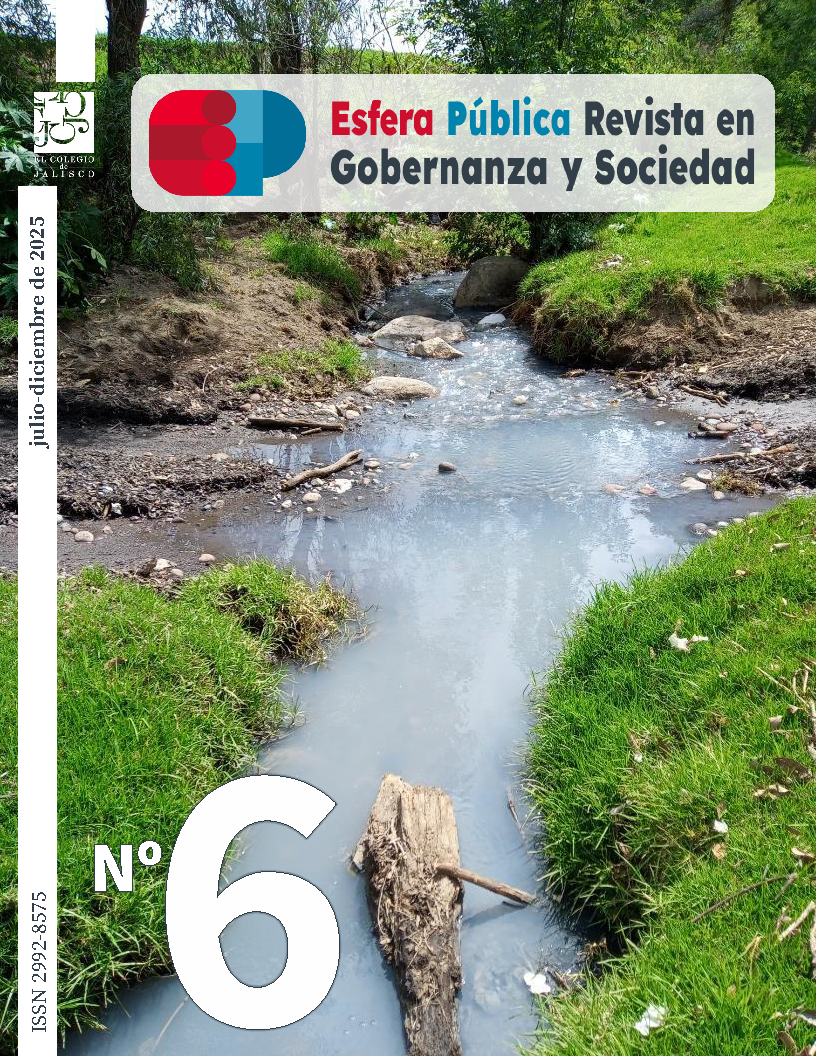Analysis of the formation of conditional cash transfer programmes in Latin America: a historical perspective on the Mexican, Brazilian, and Chilean cases
Main Article Content
Abstract
This article aims to provide an analytical overview of the process of formulating conditional public policies in Latin America, with emphasis on the period from the second half of the 1990s to the early 2000s. This historical interval was marked by a profound productive restructuring in the region, accompanied by an institutional offensive against poverty promoted and supported by multilateral organisations such as the World Bank, the International Monetary Fund (IMF), and the Economic Commission for Latin America and the Caribbean (ECLAC). Within this framework, the study focuses on a comparative analysis of three emblematic conditional cash transfer programmes: PROGRESA/Oportunidades in Mexico, Bolsa Família in Brazil, and Chile Solidario. The research examines not only the design and implementation of these initiatives but also the prior experiences in social policy in each country, adopting an approach that considers institutional learning and the role of governments and political parties involved. The article takes an explanatory perspective and is based on a systematic literature review, complemented by a contextual analysis of the relevant political actors and coalitions before and after the implementation of the programmes. This approach makes it possible to identify the political and institutional conditions that facilitated the opening of “windows of opportunity” for the adoption of these policies, as well as to understand the factors that influenced their consolidation within government agendas.
Article Details
Issue
Section

This work is licensed under a Creative Commons Attribution-NonCommercial 4.0 International License.
How to Cite
References
Calvacante, P. L. (2011). Programas de transferencias monetarias en América Latina: Un enfoque comparativo entre Brasil, México, Chile y Colombia. *Revista do Serviço Público*, Brasília.
Draibe, S. M. (1993). *Estado de bienestar en Brasil: Características y perspectivas* (Cuaderno NEPP/UNICAMP, N.º 08). [https://www.nepp.unicamp.br/biblioteca/periodicos/issue/view/104/CadPesqNepp8](https://www.nepp.unicamp.br/biblioteca/periodicos/issue/view/104/CadPesqNepp8)
Driuso, M. (2010). *Estudio comparativo de programas de transferencia de ingresos condicionados en Brasil y México* [Tesis de maestría, Universidad de São Paulo].
Francia, E. (2016). *El derecho de subsistencia en jaque: Una mirada a la Ley de Pobres y a la enmienda de 1834* [Tesis de maestría, Universidad de São Paulo].
Kingdon, G. G. (2006). Pobreza de bienestar subjetivo frente a pobreza de ingresos y pobreza de capacidades. *The Journal of Development Studies*.
Larrañaga, O., & Contreras, D. (2010). *Chile Solidario y la lucha contra la pobreza*. Santiago: PNUD.
Marshall, T. H. (1991). *Ciudadanía y clase social*. São Paulo: USP.
Moraes, V. D. (2018). *Programas de transferencia de efectivo con condicionalidades: Brasil y México en perspectiva comparada*. São Paulo: Inova-ENSP.
Osorio, C. G. (2014). Mecanismos de difusión de los programas de transferencias monetarias condicionadas en América Latina: El caso chileno. *Íconos. Revista de Ciencias Sociales, 48*, 59–75.
Pochmann, M. (2001). *El trabajo en el Brasil posneoliberal* (Cap. 2). Brasília: Liber Livros.
Rego, W. L., & Pinzani, A. (2008). *Voces de la Bolsa Familia: Autonomía, dinero y ciudadanía*. São Paulo: UNESP.
Santos, R. C. (2009). *Las desigualdades sociales y los desafíos de las políticas públicas*. Paraná: Uniedesul.
Santos Ronzoni, R. dos, & De Oliveira Correa, M. P. (2017). El nuevo desarrollismo y los programas de transferencia de ingresos en América Latina: Un análisis del Programa Bolsa Família. *Emancipação, 17*(1), 34–44.
Silva, M. O. (2014). *Programas de transferencias monetarias en América Latina y el Caribe*. São Paulo: Cortez.
Silva, M. O. da S. (Coord.). (2016). *Mito y realidad en la lucha contra la pobreza en América Latina: Un estudio comparativo de los programas de transferencia de efectivo en Brasil, Argentina y Uruguay*. São Paulo: Cortez.
Scarlato, M., & Giorgio, A. (2016). The political economy of cash transfers: A comparative analysis of Latin American and Sub-Saharan African experiences. Alemania: Instituto Alemán de Desarrollo.
Sen, A. (1999). *El desarrollo como libertad*. São Paulo: Companhia das Letras.

